-
 bitcoin
bitcoin $108842.957301 USD
-1.88% -
 ethereum
ethereum $3931.777121 USD
-1.66% -
 tether
tether $1.000186 USD
-0.03% -
 bnb
bnb $1153.250882 USD
-2.20% -
 xrp
xrp $2.367904 USD
-1.94% -
 solana
solana $186.182050 USD
-4.20% -
 usd-coin
usd-coin $0.999997 USD
0.00% -
 tron
tron $0.316949 USD
-1.00% -
 dogecoin
dogecoin $0.190780 USD
-3.12% -
 cardano
cardano $0.651324 USD
-2.67% -
 hyperliquid
hyperliquid $37.141055 USD
-0.85% -
 ethena-usde
ethena-usde $0.999224 USD
-0.09% -
 chainlink
chainlink $17.579031 USD
-2.47% -
 bitcoin-cash
bitcoin-cash $509.426284 USD
-2.79% -
 stellar
stellar $0.315298 USD
-2.93%
What is a self-custody wallet like Coinbase Wallet?
Coinbase Wallet puts you in full control of your crypto and NFTs with secure, self-custody storage and seamless dApp access—no third-party reliance.
Oct 13, 2025 at 08:54 pm
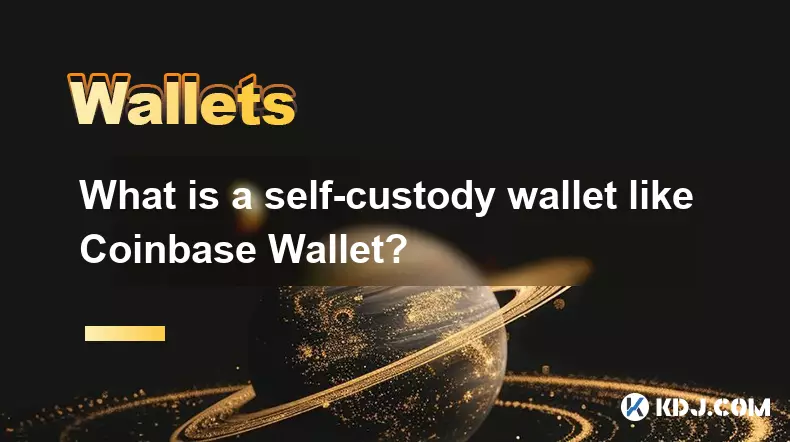
Understanding Self-Custody Wallets in the Cryptocurrency Ecosystem
A self-custody wallet such as Coinbase Wallet allows users to maintain full control over their private keys and digital assets. Unlike custodial services where a third party manages the keys, self-custody ensures that only the user has access to their funds. This model aligns with the decentralized philosophy of blockchain technology, emphasizing personal responsibility and security.
1. Users are solely responsible for securing their recovery phrases, which are essential for restoring access to the wallet.
- Transactions are signed locally on the user’s device, reducing exposure to remote attacks.
- Integration with decentralized applications (dApps) is seamless, enabling direct interaction with DeFi platforms, NFT marketplaces, and blockchain games.
- The wallet supports multiple blockchains and tokens, including Ethereum, Binance Smart Chain, Polygon, and others.
- No reliance on centralized entities means reduced risk of service shutdowns or asset freezes.
Benefits of Using Coinbase Wallet as a Self-Custody Solution
Coinbase Wallet stands out due to its user-friendly interface combined with robust security features tailored for both beginners and advanced users in the crypto space. It operates independently from the main Coinbase exchange account, reinforcing the principle of user sovereignty over assets.
1. The wallet generates and stores private keys directly on the user’s mobile device, never transmitting them to external servers.
- Biometric authentication adds an extra layer of protection against unauthorized access.
- Built-in support for Web3 browsing enables exploration of dApps without needing additional software.
- Users can store not only cryptocurrencies but also NFTs and other digital collectibles in one place.
- Regular updates enhance functionality and patch potential vulnerabilities, maintaining high security standards.
Risks and Responsibilities Tied to Self-Custody Ownership
While self-custody offers unparalleled control, it demands strict adherence to security practices. Loss of the recovery phrase typically results in permanent loss of access to funds, as there is no customer support mechanism to restore accounts.
1. If the recovery phrase is lost or stolen, there is no way to retrieve the associated assets.
- Phishing attempts and malicious apps may trick users into revealing sensitive information.
- Device compromise through malware could lead to theft if proper safeguards are not in place.
- Users must verify contract interactions when using dApps to avoid approving unauthorized token transfers.
- Backup procedures should be practiced immediately after wallet creation to prevent data loss.
How Coinbase Wallet Differs from Exchange-Based Accounts
Many confuse Coinbase Wallet with the standard Coinbase account, but they serve fundamentally different purposes. The latter is a custodial service where Coinbase holds users’ keys, while the former puts ownership entirely in the hands of the individual.
1. Funds on the Coinbase exchange platform are technically held by the company, subject to its policies and operational risks.
- With Coinbase Wallet, every transaction requires explicit approval from the user’s device.
- Transferring assets from the exchange to the wallet grants true ownership and unlocks participation in staking, governance, and lending protocols.
- Regulatory scrutiny on exchanges does not directly affect assets stored in non-custodial wallets.
- The wallet does not require KYC verification, preserving a degree of financial privacy.
Frequently Asked Questions
Can I recover my Coinbase Wallet if I lose my phone?Yes, provided you have your 12-word recovery phrase. You can reinstall the app on another device and restore your wallet using this phrase. Without it, recovery is impossible.
Is Coinbase Wallet free to use?The app itself is free to download and use. However, blockchain transaction fees apply when sending tokens or interacting with smart contracts, paid in the native currency of the respective network.
Does Coinbase Wallet support Bitcoin?Coinbase Wallet primarily focuses on Ethereum and Ethereum-compatible tokens. For Bitcoin storage, users are encouraged to use dedicated BTC wallets or multi-chain solutions that include Bitcoin support.
Can I link my Coinbase Wallet to my exchange account?Yes, you can transfer funds between your Coinbase Wallet and your Coinbase.com account. This allows easy conversion between fiat and crypto while still maintaining control over self-custodied assets.
Disclaimer:info@kdj.com
The information provided is not trading advice. kdj.com does not assume any responsibility for any investments made based on the information provided in this article. Cryptocurrencies are highly volatile and it is highly recommended that you invest with caution after thorough research!
If you believe that the content used on this website infringes your copyright, please contact us immediately (info@kdj.com) and we will delete it promptly.
- Cardano, Dogecoin, and the Token Rally: What's the Hype?
- 2025-10-17 22:45:16
- Milk Mocha Meme Coin: Last Call for Whitelist & Early HUGS Gains!
- 2025-10-17 22:45:16
- Crypto's New Sweetheart: Milk & Mocha's $HUGS Token and the Early Rounds Advantage
- 2025-10-17 22:25:12
- Crypto Picks for 2025: Blazpay Presale and Emerging Trends
- 2025-10-17 22:50:12
- Meme Coins: Riding the Early Bird Gold Rush
- 2025-10-17 23:05:12
- Shannon Man, Cash Prizes, and Coin Games: A New York Minute on a Georgia Arrest
- 2025-10-17 22:50:12
Related knowledge

How to find the best gas fee settings in MetaMask?
Oct 17,2025 at 05:54pm
Understanding Gas Fees in MetaMask1. Gas fees are payments made by users to cover the computational energy required to process and validate transactio...
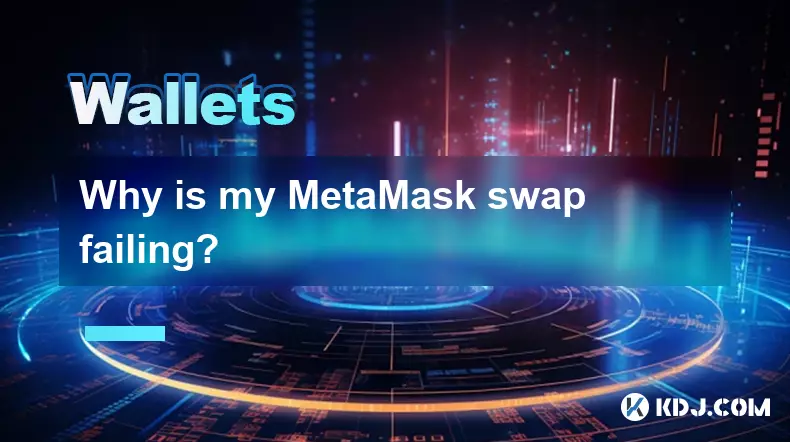
Why is my MetaMask swap failing?
Oct 17,2025 at 04:01am
Common Reasons for MetaMask Swap Failures1. Insufficient gas fees – Transactions on Ethereum and other EVM-compatible blockchains require gas to execu...
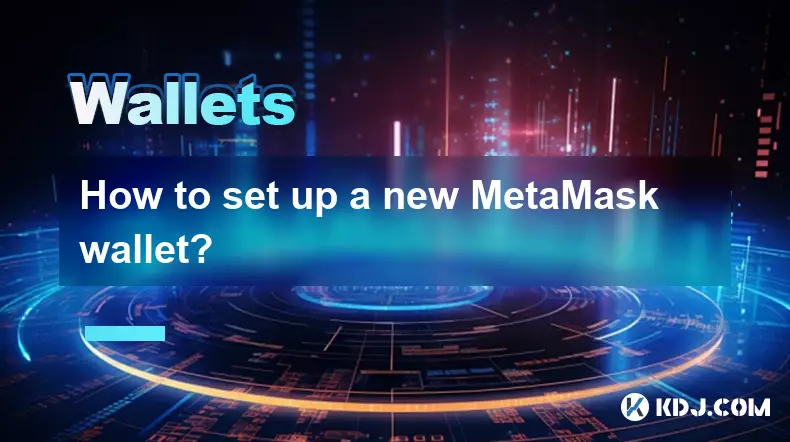
How to set up a new MetaMask wallet?
Oct 16,2025 at 11:37pm
Creating a New MetaMask Wallet1. Navigate to the official MetaMask website or download the MetaMask extension from your browser’s web store. Supported...
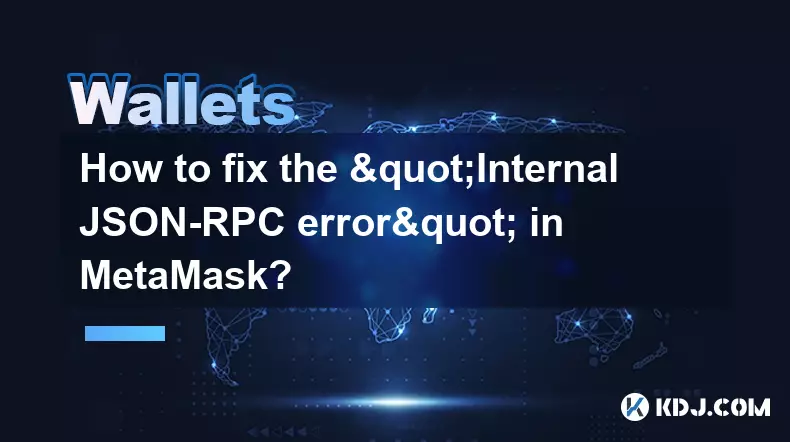
How to fix the "Internal JSON-RPC error" in MetaMask?
Oct 17,2025 at 08:00am
Understanding the 'Internal JSON-RPC Error' in MetaMask1. The 'Internal JSON-RPC error' is a common issue encountered by users interacting with decent...

How to secure your MetaMask wallet from scams?
Oct 17,2025 at 02:55pm
Understanding Common MetaMask Scams1. Fake phishing websites are one of the most prevalent threats to MetaMask users. These sites mimic legitimate pla...
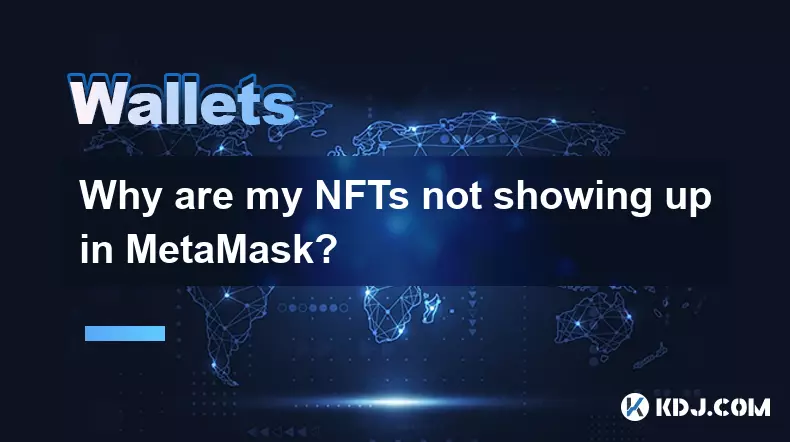
Why are my NFTs not showing up in MetaMask?
Oct 17,2025 at 09:00am
Understanding Wallet Connectivity and NFT Display Issues1. MetaMask functions as a non-custodial wallet that connects to various blockchains, but it d...

How to find the best gas fee settings in MetaMask?
Oct 17,2025 at 05:54pm
Understanding Gas Fees in MetaMask1. Gas fees are payments made by users to cover the computational energy required to process and validate transactio...

Why is my MetaMask swap failing?
Oct 17,2025 at 04:01am
Common Reasons for MetaMask Swap Failures1. Insufficient gas fees – Transactions on Ethereum and other EVM-compatible blockchains require gas to execu...

How to set up a new MetaMask wallet?
Oct 16,2025 at 11:37pm
Creating a New MetaMask Wallet1. Navigate to the official MetaMask website or download the MetaMask extension from your browser’s web store. Supported...

How to fix the "Internal JSON-RPC error" in MetaMask?
Oct 17,2025 at 08:00am
Understanding the 'Internal JSON-RPC Error' in MetaMask1. The 'Internal JSON-RPC error' is a common issue encountered by users interacting with decent...

How to secure your MetaMask wallet from scams?
Oct 17,2025 at 02:55pm
Understanding Common MetaMask Scams1. Fake phishing websites are one of the most prevalent threats to MetaMask users. These sites mimic legitimate pla...

Why are my NFTs not showing up in MetaMask?
Oct 17,2025 at 09:00am
Understanding Wallet Connectivity and NFT Display Issues1. MetaMask functions as a non-custodial wallet that connects to various blockchains, but it d...
See all articles










































































